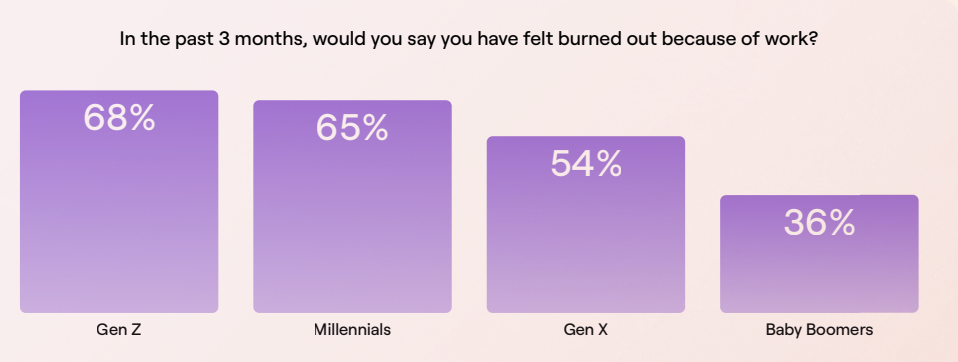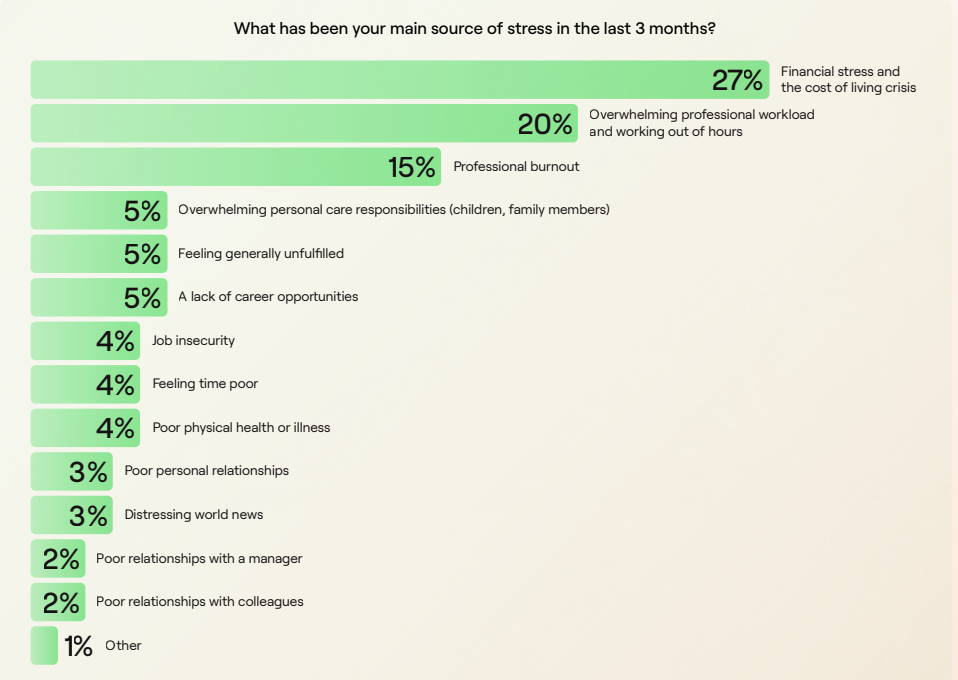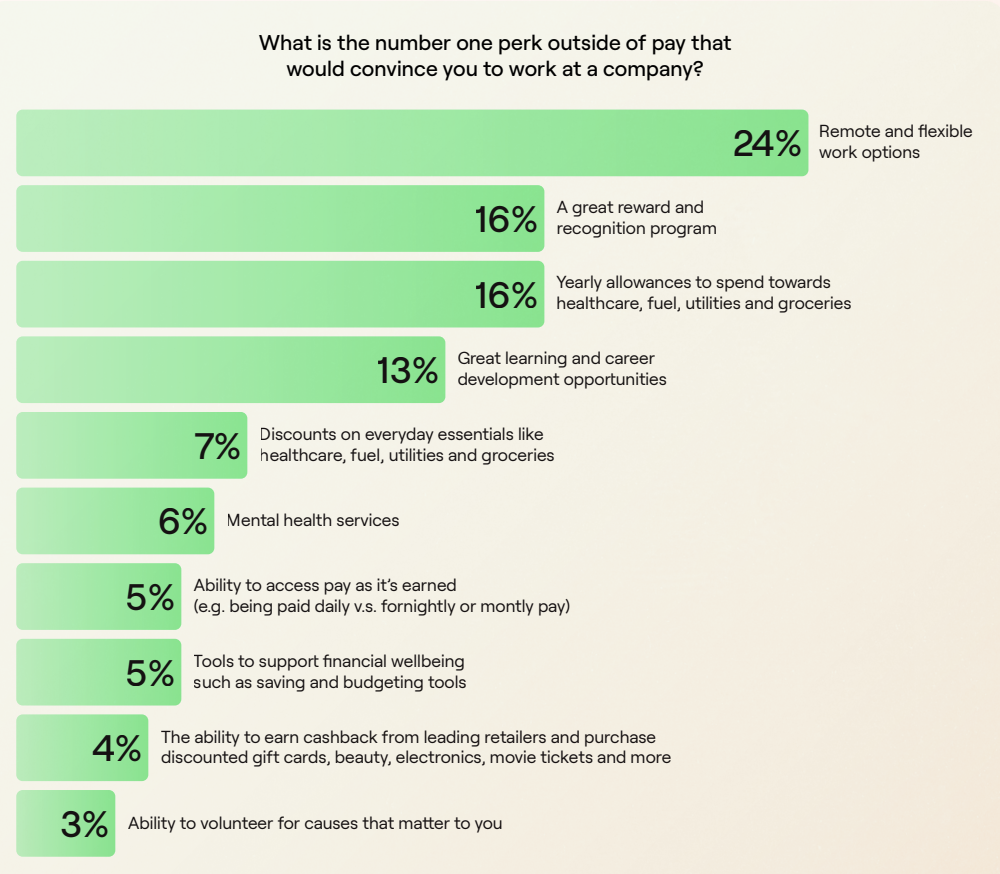
Financial challenges have impact on employees' mental health

Burnout remains high in Singapore despite declining slightly since 2022, according to a new report from Employment Hero.
The 2024 Wellness at Work Report revealed that 61% of Singaporean employees are struggling with burnout, dipping slightly from 62% in 2022.
Younger employees are more likely to struggle with burnout, as Gen Z (68%) and Millennial (65%) employees admitted that they have experienced burnout because of work.

Source: Employment Hero's 2024 Wellness at Work Report
With burnout levels high, the report said it is also "no surprise" that stress levels are also surging in Singapore.
According to the report, a third of employees feel stressed at work a few days a week (39%) and a few days a month (36%). Some 11% of employees also feel stressed every day a week, while the same percentage said they feel stressed for a few days a year.
Singaporeans' main reason for stress is the cost-of-living crisis, as cited by 27% of the respondents.
"This comes as no surprise as we battle higher GST (Goods and Services Tax) rates, a cost-of-living crisis, and the full force of inflation," the report read. "This is putting households under immense pressure, and it's not only seeping into our financial health, but also our mental health."
Another 20% attributed their stress to overwhelming professional workload and working out of hours, while 15% cited professional burnout. 
Source: Employment Hero's 2024 Wellness at Work Report
Overall, 56% of Singaporean employees are satisfied with their overall mental health, which goes up to 71% for fully remote workers.
"As our data shows, remote work tends to lead to happier and more engaged employees. This is perhaps no surprise," said Ben Thompson, CEO and co-founder at Employment Hero, in the report.
"For those that have the option to provide remote work, it can offer unparalleled flexibility, allowing employers to recruit the best talent and for employees to do their best work."
This is also likely the reason why remote work is the top benefit that would convince an employee to work for an organisation outside of pay. Nearly a quarter of the respondents (24%) said the top perk that would make them to work for a company is remote and flexible work options.
They also cited a great reward and recognition programme (16%) and yearly allowances to spend towards healthcare, fuel, utilities, and groceries (16%). 
Source: Employment Hero's 2024 Wellness at Work Report